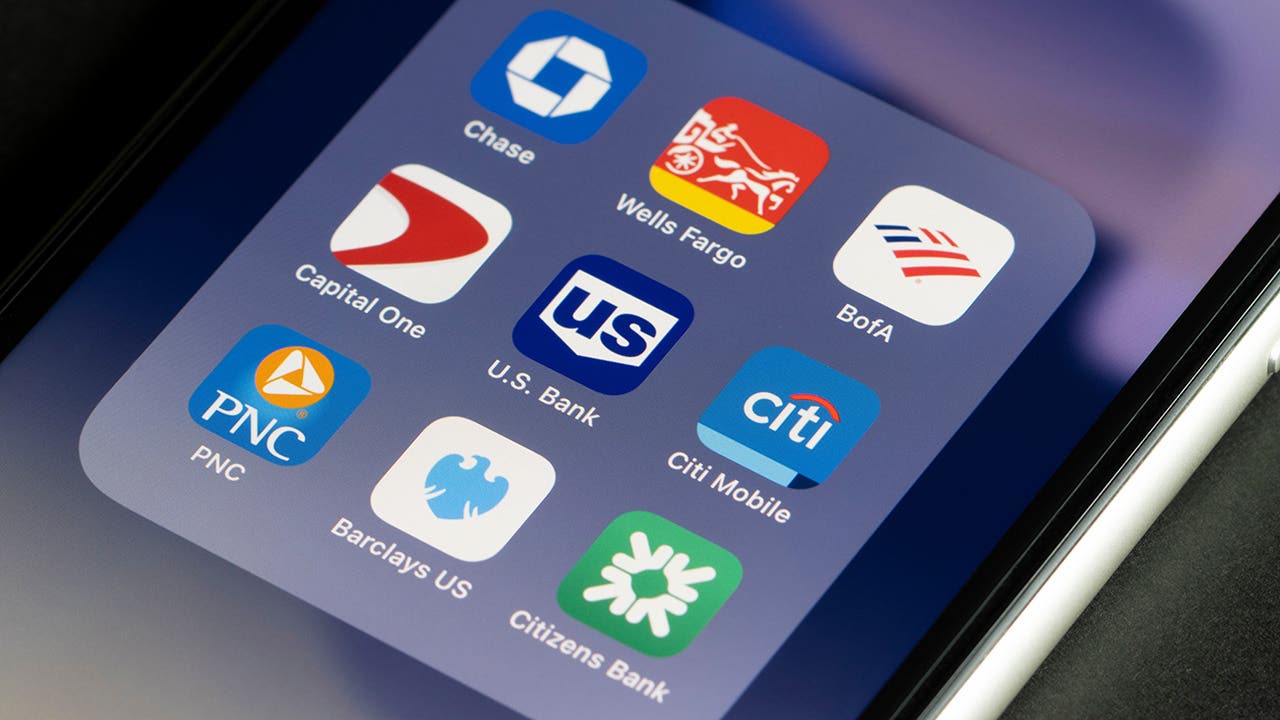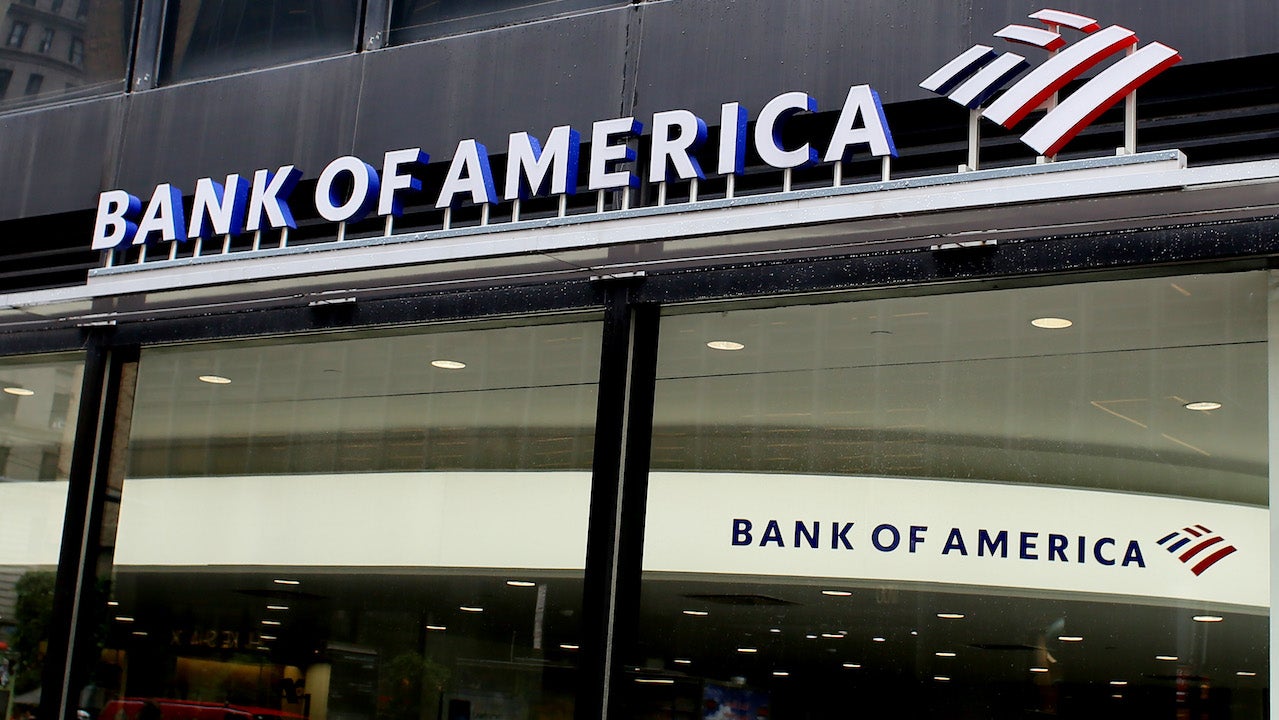These are the most popular banks in each state in 2025

Banking with one of the most popular banks can mean having access to more locations, better digital features, and nationwide convenience when you travel. The largest banks typically offer highly rated mobile apps with features like mobile check deposits and extensive ATM networks that can save you money on fees.
Knowing which banks dominate your state — and nationally — can help you choose a financial institution that will serve you well whether you’re at home or traveling across the country.
Largest U.S. banks by number of branches
The banking landscape continues to be dominated by a handful of major institutions, with JPMorgan Chase maintaining its position as the clear leader in branch count.
| Bank | Branches |
|---|---|
| Chase | 4,970 |
| Wells Fargo | 4,227 |
| Bank of America | 3,669 |
| PNC Bank | 2,441 |
| U.S. Bank | 2,342 |
| Truist Bank | 2,003 |
| Regions Bank | 1,276 |
| TD Bank | 1,173 |
| Citizens Bank | 1,095 |
| Fifth Third Bank | 1,082 |
| Huntington | 1,051 |
| BMO | 1,045 |
| M&T Bank | 1,035 |
| Keybank | 985 |
| Woodforest National Bank | 775 |
| Source: Federal Reserve and FDIC data as of March 2025. | |
Chase’s dominance becomes clear when you consider that it operates nearly 1,000 more branches than its closest competitor, Wells Fargo. Together, Chase and Wells Fargo account for about 12% of all bank locations in the United States.
Which banks operate nationwide?
No bank operates branches in all 50 states. Chase comes closest, with a presence in 48 contiguous states plus Washington D.C., but it doesn’t operate retail branches in Alaska or Hawaii.
Chase’s expansion into all lower 48 states was completed in August 2021 when it opened its first Montana branch in Billings. This historic milestone made Chase the first bank to achieve retail presence across the entire continental United States.
This nationwide presence gives Chase a significant competitive advantage, especially for customers who travel frequently or relocate for work. However, residents of Alaska and Hawaii must rely on other banks for in-person banking services.
Most popular bank by state
State-by-state banking preferences often reflect regional history, local bank mergers and geographic expansion. Here’s which bank leads in branch count across major states:
Here are the most popular banks in selected states and Washington, D.C.
| Bank | Bank with the most branches in that state or Washington, D.C. |
|---|---|
| California | Chase |
| Colorado | Wells Fargo |
| Florida | Wells Fargo |
| Georgia | Truist Bank |
| Illinois | Chase |
| Nevada | Wells Fargo |
| New Jersey | Wells Fargo |
| New York | Chase |
| North Carolina | Truist Bank |
| Pennsylvania | PNC Bank |
| South Carolina | First Citizens Bank |
| Texas | Wells Fargo |
| Virginia | Truist Bank |
| Washington | Chase |
| Washington, D.C. | Wells Fargo |
Notable changes in 2024-2025
Bank consolidation and strategic repositioning have shifted the competitive landscape in several states:
Wyoming: Glacier Bank now has the most locations following Bank of the West’s merger with BMO.
New Hampshire: TD Bank overtook Citizens Bank as the state leader through targeted expansion.
Chase vs. Wells Fargo
For the third consecutive year, Chase maintains its lead over Wells Fargo in total U.S. branches. However, the gap has been narrowing as Wells Fargo focuses on optimizing its network rather than expanding.
Historical comparison:
- 2021: Wells Fargo led by 63 branches
- 2022: Chase took the lead by 87 branches
- 2025: Chase leads by 743 branches
Wells Fargo has been more aggressive in closing underperforming locations, shuttering approximately 328 branches since 2023. Chase, meanwhile, continues expanding with plans to open 500 new branches by 2027.
The future of bank branches
Despite predictions that branches would disappear, physical locations remain important to many consumers. However, the total number continues its gradual decline.
The overall branch count dropped 4.2% between 2023 and 2024, with 77,796 total locations remaining nationwide. This represents a slower decline than many experts predicted, suggesting branches still serve important customer needs.
Mobile banking and online services handle routine transactions, but customers still value branches for complex services like mortgage applications, business banking and financial advice.
Chase is bucking the closure trend, planning significant expansion through 2027. The bank believes its omnichannel approach — combining extensive branch networks with advanced digital tools — provides competitive advantages.
Finding the right bank for you
When choosing between popular national banks and smaller institutions, consider your specific needs:
National banks excel at:
- Extensive ATM networks for fee-free access
- Consistent services when traveling or relocating
- Advanced mobile apps and digital tools
- Wide range of financial products
Consider alternatives if you prioritize:
- Higher interest rates on savings accounts
- Lower fees and minimum balance requirements
- Personalized customer service
- Supporting local community banks
Bottom line
The most popular bank in your state might not be the best bank for your needs. Branch convenience matters, but factors like fees, interest rates and digital capabilities often have bigger impacts on your banking experience.
Ready to find the best bank for your situation? Compare Bankrate’s best checking accounts to see current rates and features. If you’re considering a national bank, explore our reviews of Chase and Wells Fargo to understand their specific strengths and weaknesses.
Why we ask for feedback Your feedback helps us improve our content and services. It takes less than a minute to complete.
Your responses are anonymous and will only be used for improving our website.






